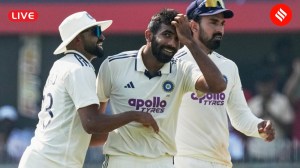Amartya & the argumentative Indian
Hours after his old friend and fellow economist Manmohan Singh formally released his new book, The Argumentative Indian, at the Prime Minist...

Hours after his old friend and fellow economist Manmohan Singh formally released his new book, The Argumentative Indian, at the Prime Minister’s Residence, Nobel laureate Amartya Sen spoke on the book’s theme ‘‘Indian History, Culture and Identity’’ to a packed house at the India Habitat Centre.
Marshalling facts that many in the audience weren’t even aware of, pulling out names and dates with a conjuror’s relish,
Sen took his listeners on a fascinating intellectual journey to emphasise his belief in India’s ‘‘heritage of heterodoxy’’.
It was present, he pointed out, in the Ramayana, where Rama was questioned by an agnostic scholar and asked to eschew suspicion. It was present, Sen continued, three centuries before Christ, when Ashoka ‘‘laid down the rules for tolerance and debate’’ before the Third Buddhist Council in Pataliputra. It was present, he pointed out, in the 1590s, when, as Europe was sinking into the Inquisition, Akbar was redefining pluralism.
Alluding to ancient India and the contested perceptions of India’s pre-Islamic past, Sen urged it not be seen in terms of a ‘‘reductionist account of Hindu religiosity’’. While his attack on the Hindutva world view was sharp, he stressed that India’s strength was its tradition of disputation, the basis, in a sense, of its democracy.
While Sen’s references to the past—flowing from his address to the Indian History Congress some years ago, which too referred to the tradition of heterodoxy— set the pace, the evening featured contemporary issues as well.
At the question and answer session that followed the Harvard professor’s address, he made a case, as he has often done in the past, of marrying a welfare system to the market. He pointed to China, which, in 1979 adopted the market but ‘‘abolished, in just one day, social health insurance’’. This had not served China well, he said: to take an example, in terms of infant mortality or death rates it was not as far ahead of India as it had been a quarter-century ago.
In India, Sen stressed, such dramatic, and to his mind negative, shifts would not be possible courtesy the built-in correctives of democracy, political opposition and the media—all manifestations of the The Argumentative Indian.
Jointly hosted by CII—its president and ITC chairman Yogi Deveshwar made the introductory remarks—and publishers Penguin, the evening saw many Sen fans from among the Capital’s intelligentsia in attendance. Former law minister Ram Jethmalani sat next to Petroleum Minister Mani Shankar Aiyar, and even asked Sen if he thought India’s ‘‘paganism’’ made it more suited to democracy.
Isher Judge Ahluwalia, who shares a calling—economics—and a college— Kolkata’s Presidency—listened keenly. In the same row sat the de Rothschilds, Sir Evelyn—for whom Amartya Sen is a jamai, being married to his cousin Emma Rothschild—and his wife, Lady Lynn.



- 01
- 02
- 03
- 04
- 05




























